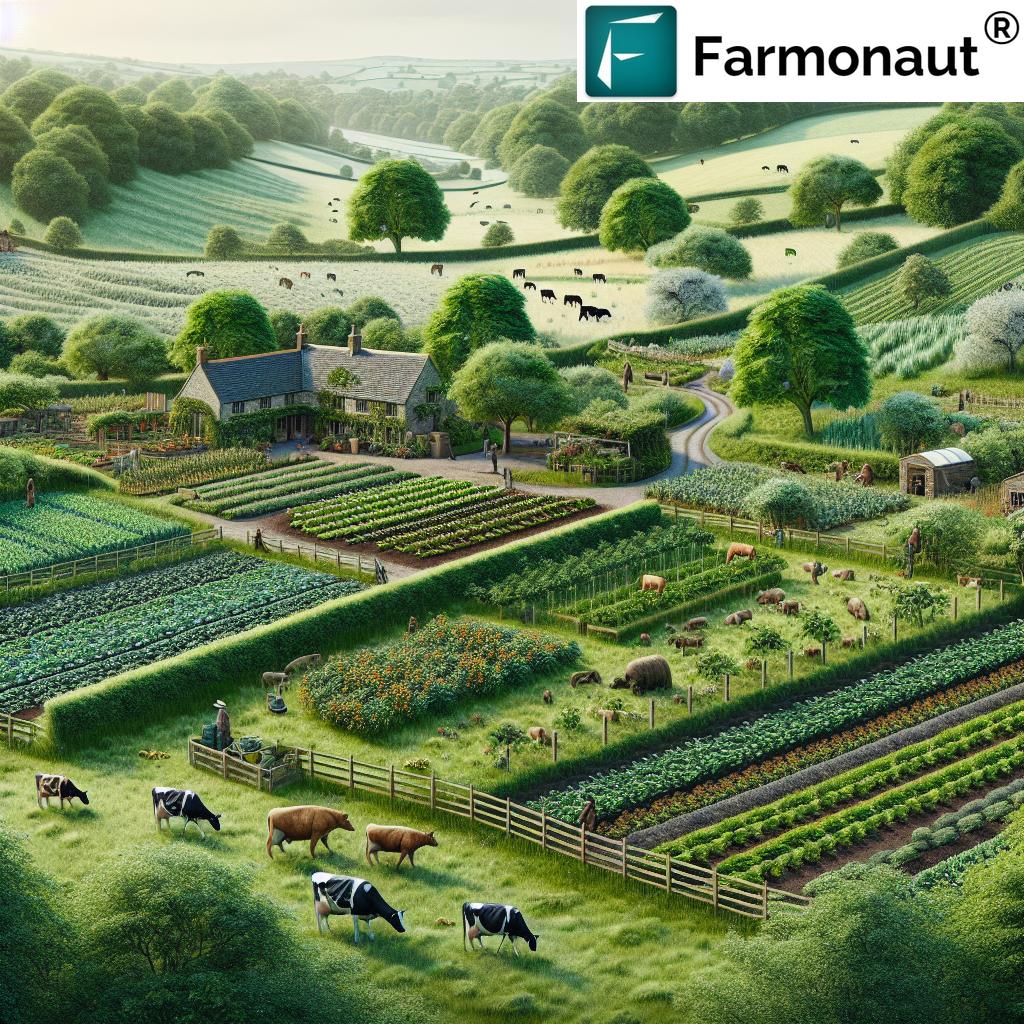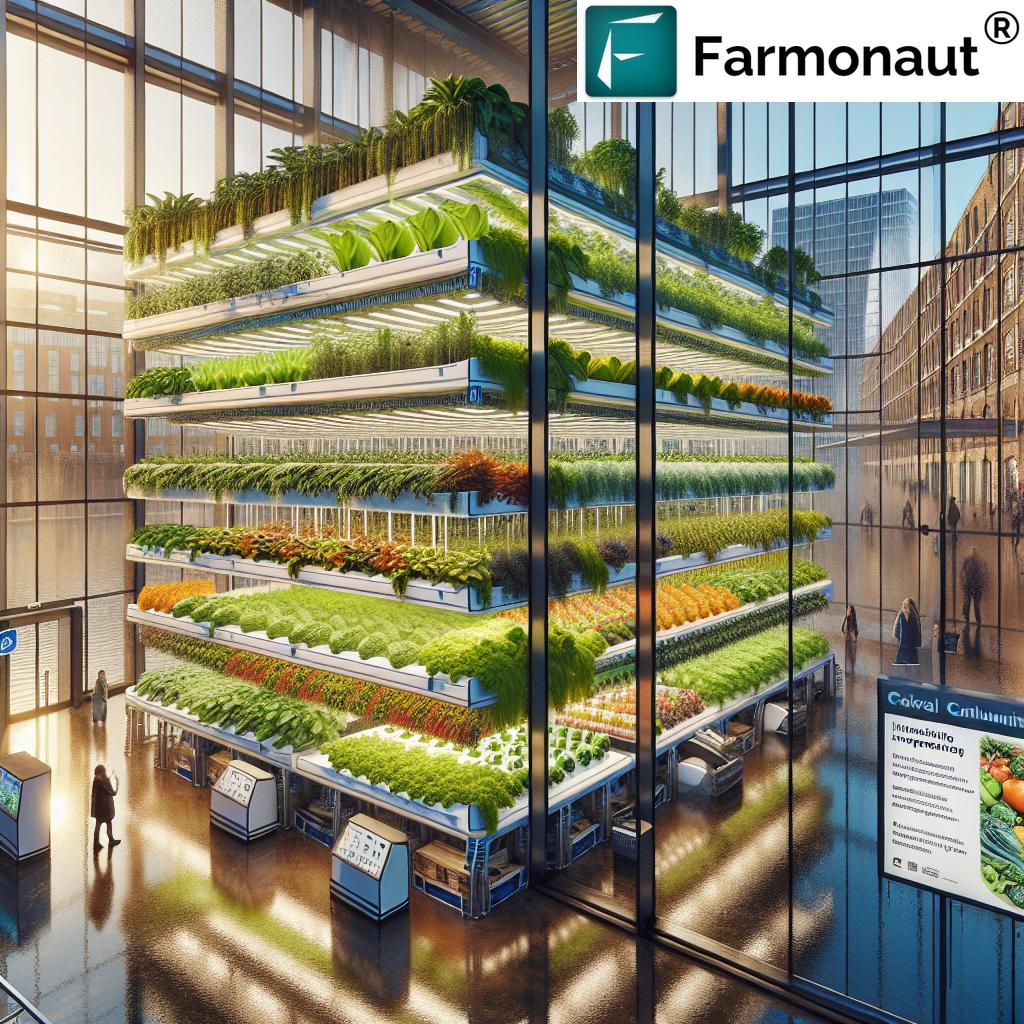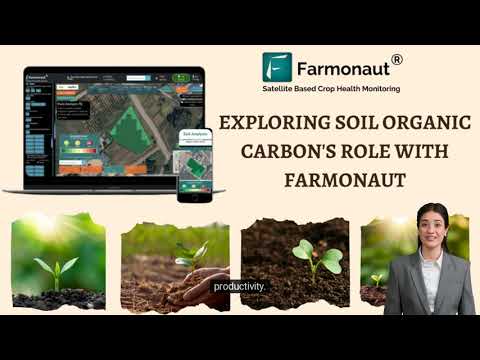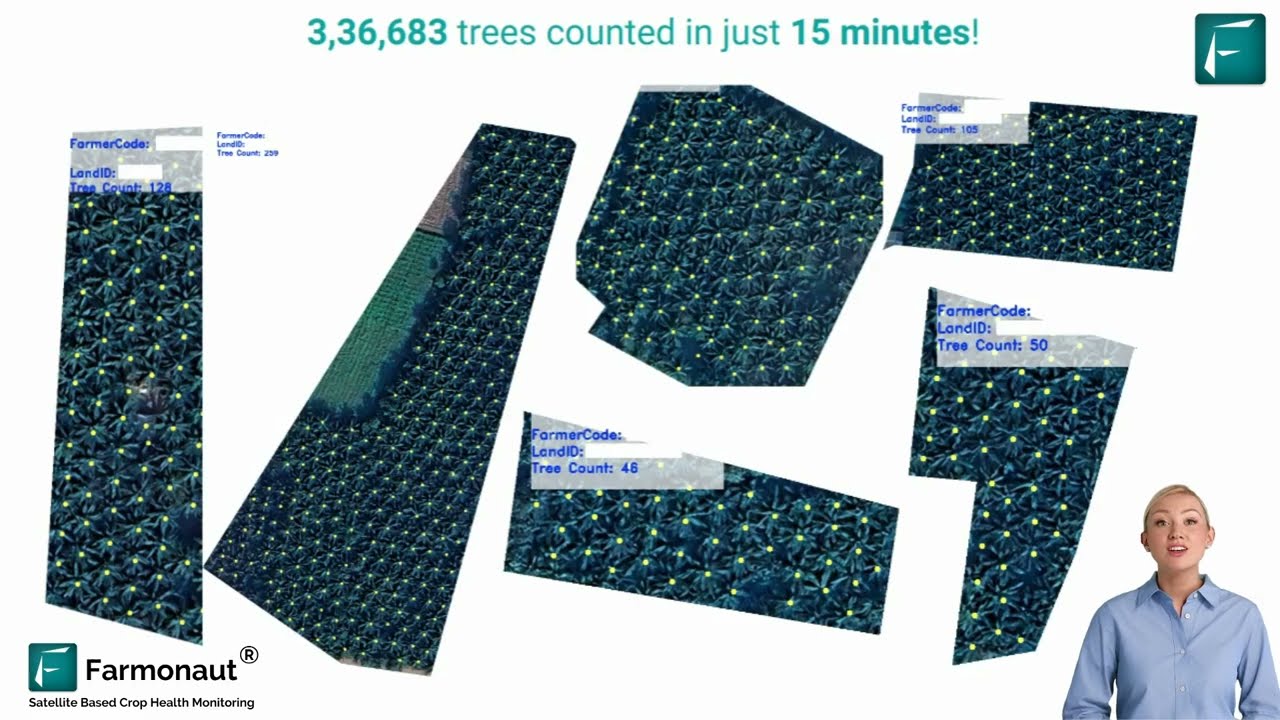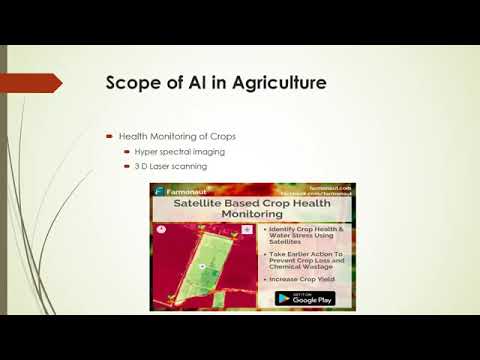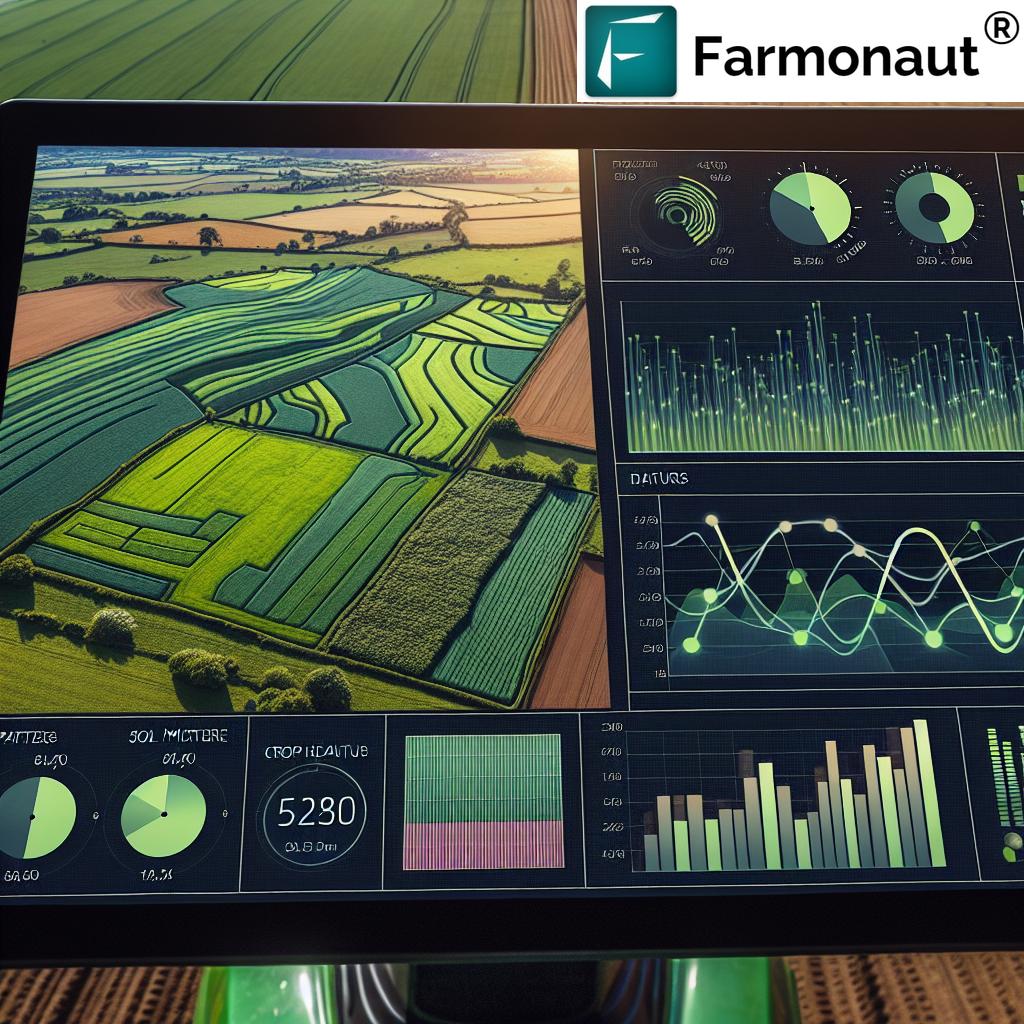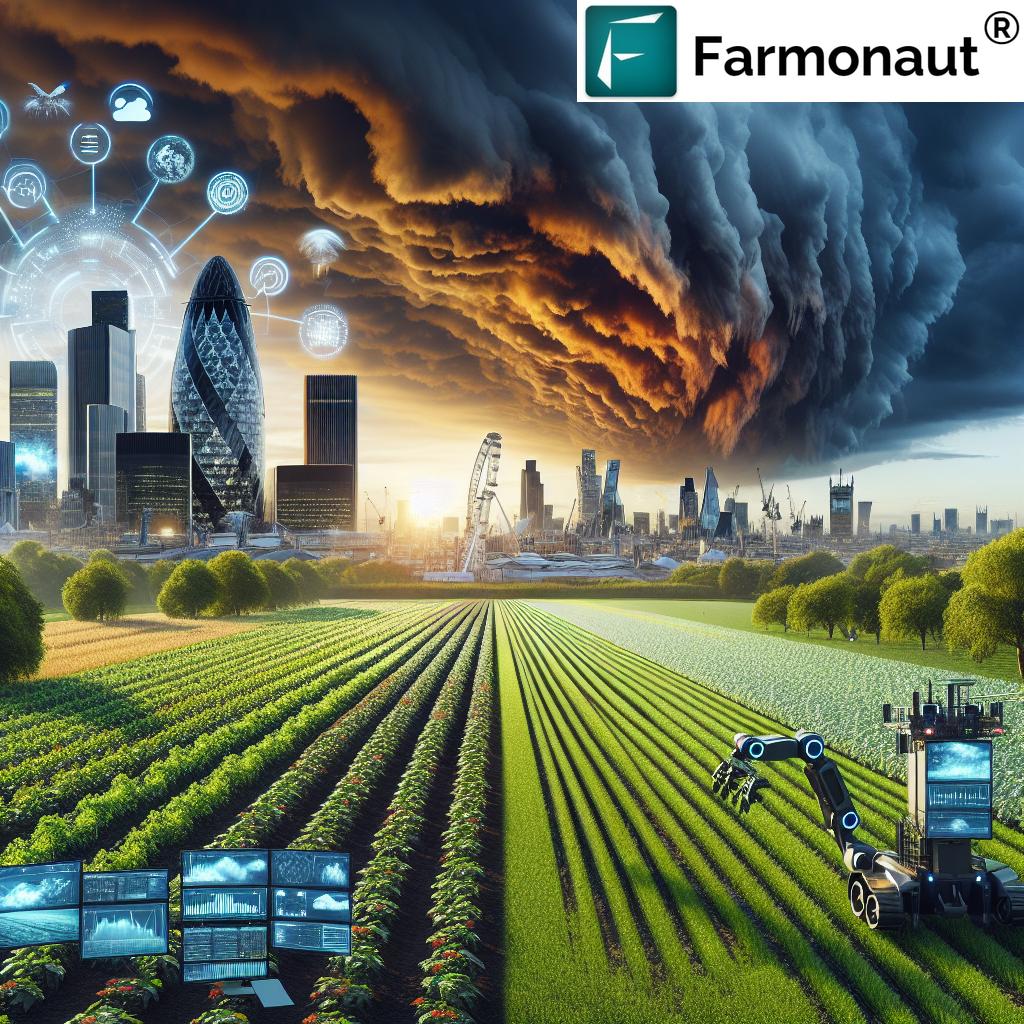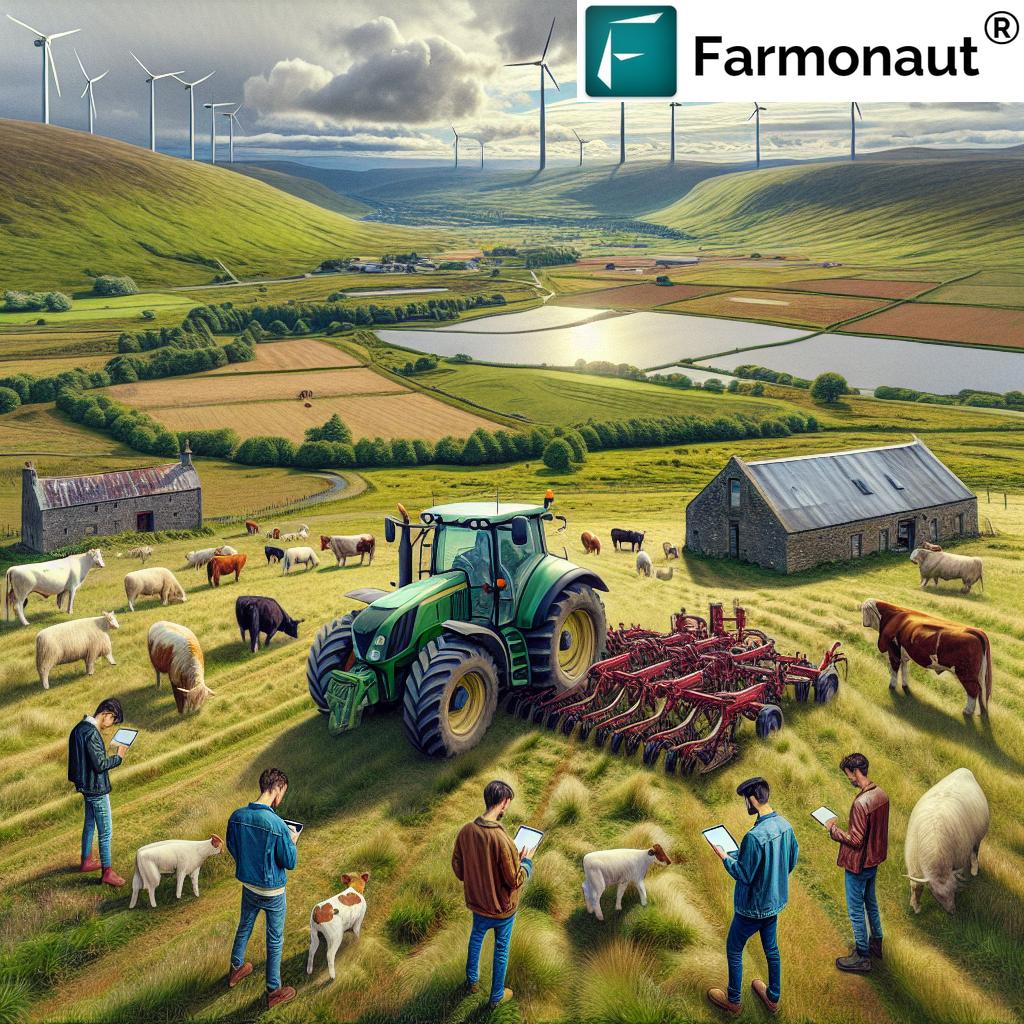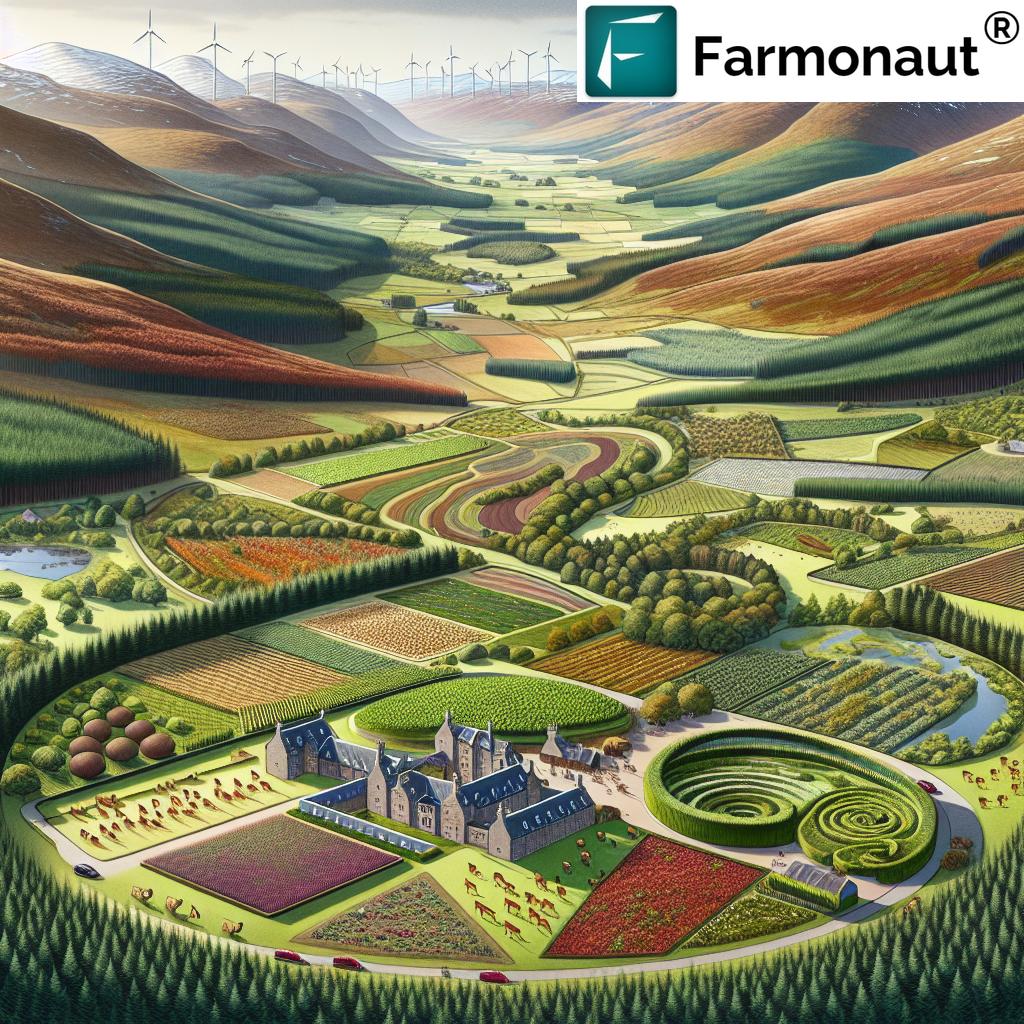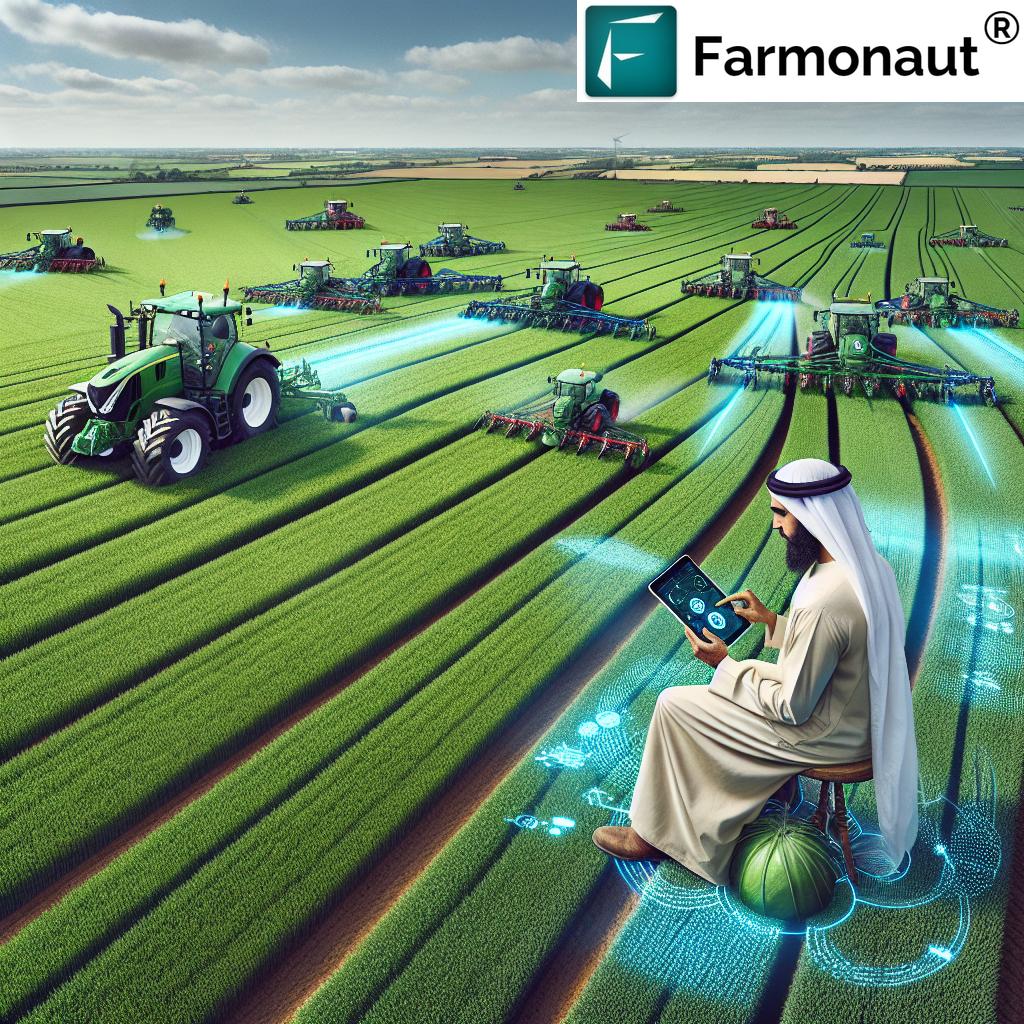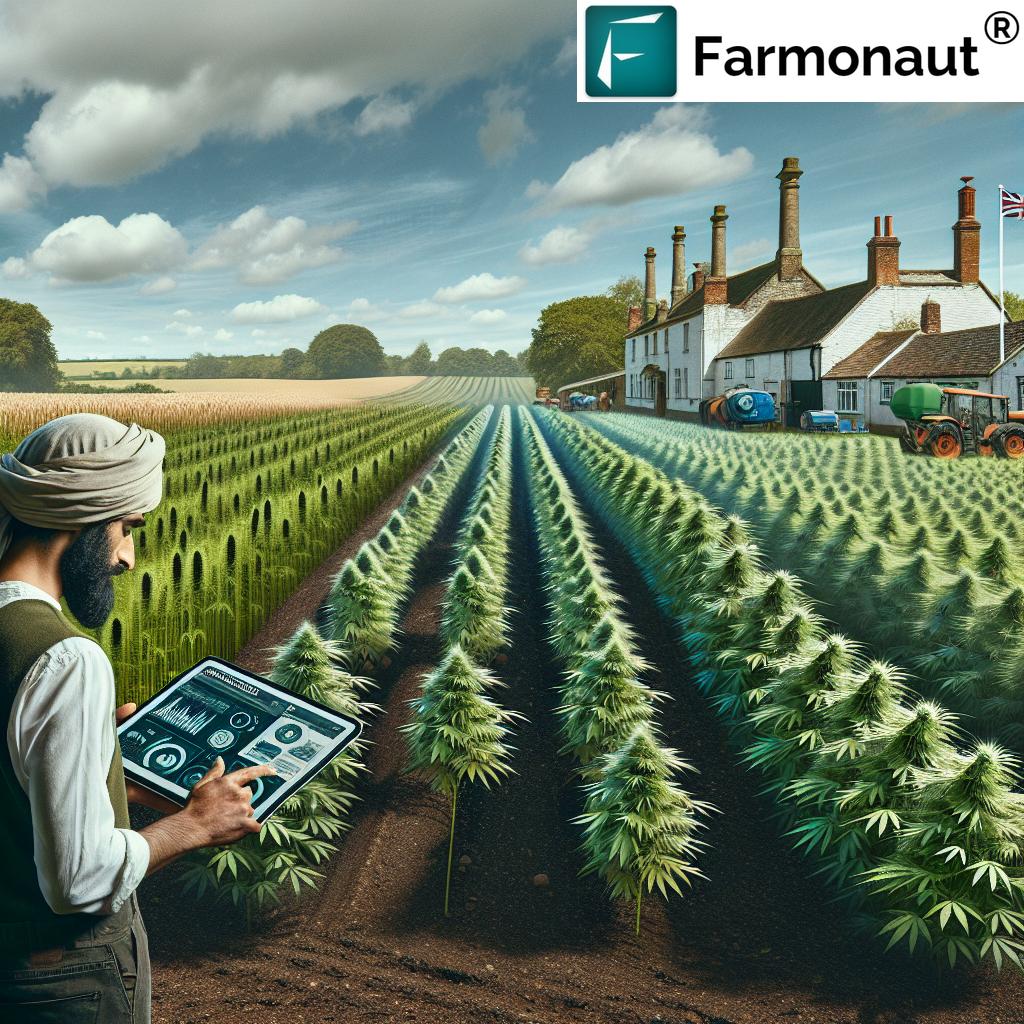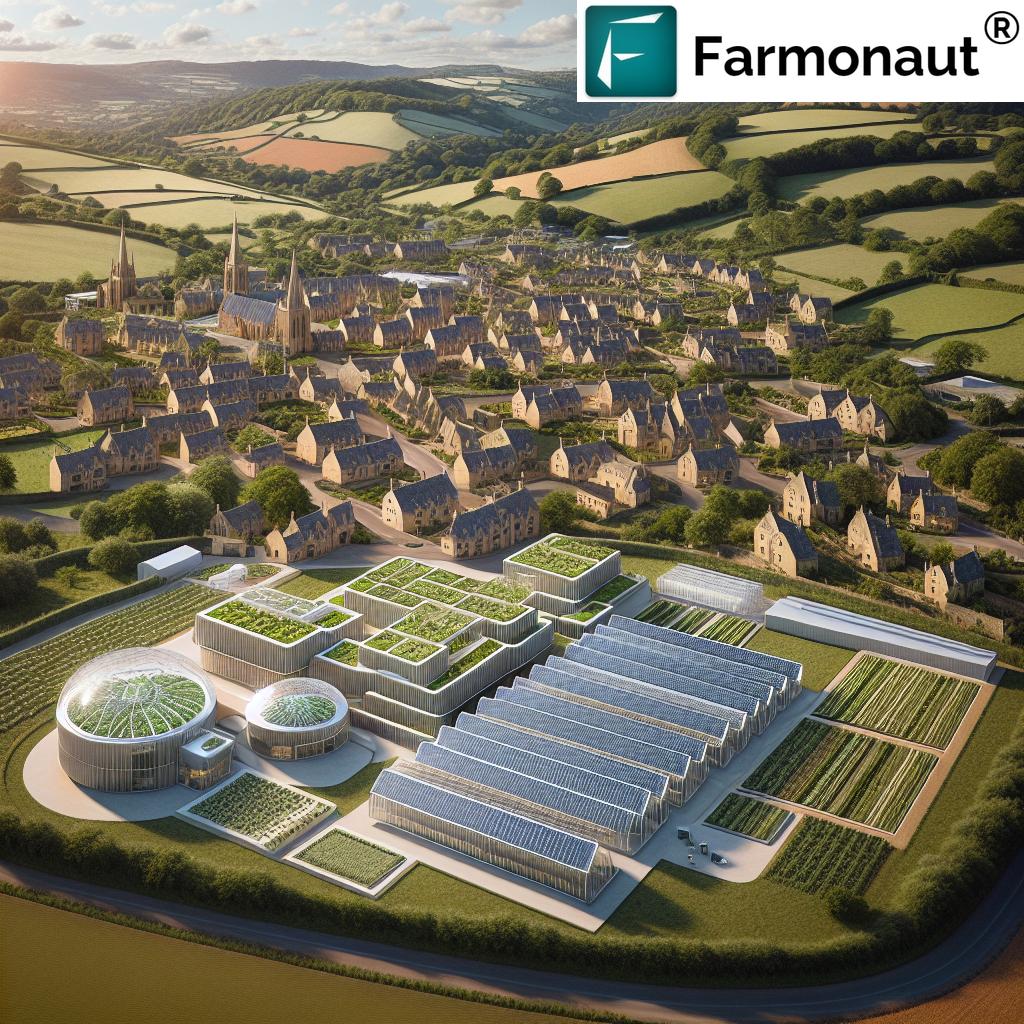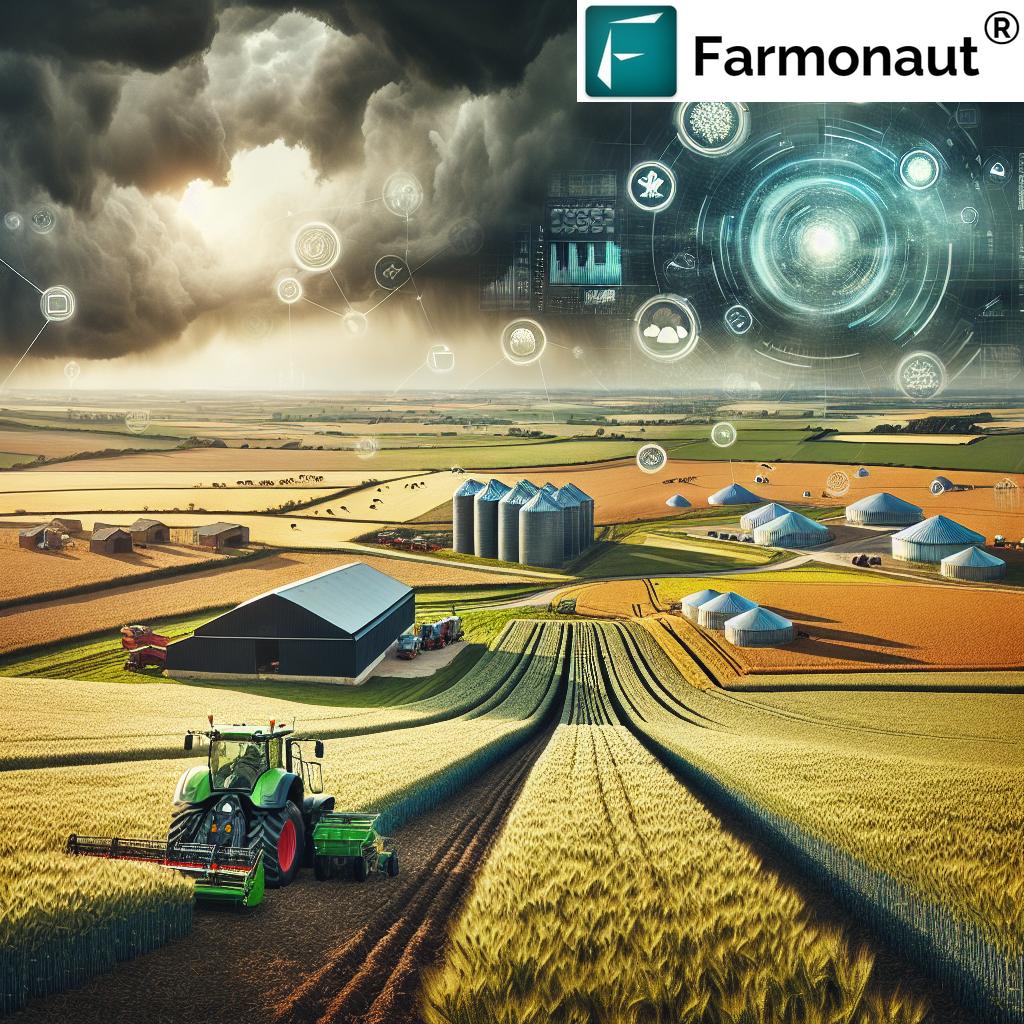Food Sustainability and Farming UK: Boost Biodiversity
“Over 70% of UK land is used for agriculture, making sustainable practices crucial for biodiversity and food security.”
Table of Contents
- Introduction: Food Sustainability in the UK
- Sustainable Farming Practices in the UK
- Comparative Table: Sustainable Farming Practices in the UK
- Technological Innovation in Sustainable Agriculture
- Vertical Farming Benefits and Controlled Environment Agriculture
- Environmental Stewardship in Agriculture: UK Policy and Legislation
- Community Initiatives and Public Engagement
- Reducing Food Waste: A Critical Challenge
- Boosting Biodiversity in UK Agriculture
- Climate Resilient Farming & the Future of Food Sustainability UK
- How Farmonaut Supports Sustainable Agriculture
- Farmonaut Subscription Plans
- FAQ: Food Sustainability and Farming UK
- Conclusion
Introduction: Food Sustainability in the UK
In the heart of the United Kingdom, where farming landscapes define over 70% of our territory, the quest for food sustainability stands as a pressing and multifaceted challenge. As we navigate a rapidly changing environment and adapt to growing agricultural demands, our collective commitment to environmental stewardship in agriculture becomes nothing short of imperative. The food sustainability UK movement is fuelled by a synergy of sustainable farming practices, policy innovation, technological progress, and vibrant community engagement—all designed to enhance biodiversity, maintain soil health, and secure a climate-resilient agricultural future.
In this blog, we will explore what shapes our contemporary food and farming sector—from pioneering vertical farming benefits and precision agriculture technology to robust organic farming methods, leading policy frameworks, and interactive community projects. We’ll also discover how innovative solutions like Farmonaut are making sustainable farming accessible and scalable for UK farmers.
“Vertical farming in the UK can use up to 95% less water than traditional farming methods, boosting sustainability.”
Sustainable Farming Practices UK: Enhancing Biodiversity and Environmental Health
To achieve food sustainability UK, we must foreground sustainable farming practices UK—methods prioritizing resource efficiency, ecosystem health, and the prosperity of both people and wildlife. Biodiversity in agriculture is not merely a wishful ideal, but a tangible necessity for long-term food security and ecosystem balance. Let’s delve into the methods reshaping our agricultural sector:
Agroforestry: Integrating Trees, Crops, and Livestock
- Agroforestry is a transformative method that integrates trees with crops or livestock, fostering a rich, multi-layered ecosystem.
- This practice enhances biodiversity, reinforces soil structure, and sequesters both carbon and nitrogen—crucial for climate change mitigation.
- By providing shelter and shade for grazing cows, fruit trees add an extra income stream through fruit production, while supporting meadow birds like pipits and other farmland wildlife.
Organic Farming Methods: Cornerstones of Sustainable Agriculture
- Organic farming methods rely on natural cycles, avoids synthetic pesticides and fertilizers, and fosters beneficial insects like pollinators and natural predators.
- This method reduces reliance on chemical inputs and enhances biodiversity in the agricultural landscape.
- Organic farms in the UK act as refuges for pollinators, birds, and soil organisms, supporting a healthy ecosystem.
No-Dig and Reduced Tillage Farming
- No-dig and reduced tillage techniques help preserve soil structure, boost soil health, and support natural biodiversity on UK farms.
- These practices reduce soil erosion, support worm populations, and increase water retention, promoting sustainable production and lower input costs.
Cover Cropping: Enriching Soil & Reducing Erosion
- Cover crops—planted between regular crop cycles—improve soil fertility and suppress weeds naturally.
- They play a key role in reducing carbon emissions and building climate resilient farming systems.
Comparative Table: Sustainable Farming Practices in the UK
| Farming Practice | Description | Estimated Biodiversity Impact | Climate Impact (CO₂ reduction/ha/year) | Adoption Rate in UK |
|---|---|---|---|---|
| Organic Farming | Avoids synthetic pesticides/fertilizers; relies on natural inputs and crop rotations. | 20–30% higher pollinator & bird presence | ~480 kg less CO₂ | ~3% of total farms |
| Vertical Farming | Controlled, multi-level indoor crop production using hydroponics/LED lighting. | Urban wildlife refuges; up to 10x yield/m² | ~90% less CO₂ for transport, 95% less water | <1% (rapidly growing in urban areas) |
| No-Till Agriculture | Minimizes or eliminates soil tillage to preserve structure and carbon stores. | 15% increase in soil organisms and farmland birds | ~300 kg less CO₂ | 12–17% of UK arable farms |
| Agroforestry | Integrates trees with crops/livestock for shade, windbreaks, and fruit/nut yields. | Up to 70% greater species diversity | ~1,600 kg less CO₂ (with tree planting) | <3% but growing via new incentives |
Technological Innovation in Farming: Driving Food Sustainability UK
The UK agricultural sector thrives on cutting-edge innovation, embracing new technologies that elevate our ability to produce food efficiently while minimizing environmental impacts. Key strategies we are adopting include:
Precision Agriculture Technology: Smarter Farms, Less Waste
- Using precision agriculture technology, farmers now leverage sensors, satellite imagery, machine learning, and real-time analytics to monitor crop health, soil moisture, and resource use.
- This approach reduces unnecessary application of fertilizers and pesticides, cutting waste, improving yields, and lowering our sector’s carbon footprint.
- Data-driven decision making means we can optimize irrigation schedules, reduce water use, and balance crop needs with environmental sustainability.
Tools like Farmonaut’s satellite-based farm management app are making precision agriculture affordable and accessible from any device—web, Android, or iOS. Their tech includes:
- Real-time crop health monitoring (NDVI and other indices)
- Soil moisture analysis to optimize water use
- AI-powered advisory and carbon footprinting
- Blockchain-based product traceability
- Resource and fleet management
These features streamline farm operations, reduce costs, and empower a new generation of food producers to operate more sustainably.
AI and Blockchain: Transparency & Decision Support
- Artificial intelligence (AI) and blockchain solutions are enhancing our ability to ensure food security and traceability.
- Blockchain traceability means every food product’s journey—from farm to fork—is documented, transparent, and trustworthy, aligning with modern consumer demands.
Vertical Farming Benefits in the UK: Boosting Food Security & Urban Biodiversity
As population density increases in urban areas, vertical farming offers benefits that address several sustainability and biodiversity challenges:
- Year-Round Production: Vertical farms operate under controlled conditions, using hydroponics or aeroponics and optimized LED lighting—delivering regular, high-yield food production regardless of the British weather.
- Minimal Water Use: Up to 95% less water is required compared to soil farming, vastly reducing the agricultural water footprint in the UK.
- Reduced Emissions: Produce is grown close to urban consumers, slashing transportation emissions and providing fresher food with a lower carbon footprint.
- Biodiversity Opportunities: Indoor or rooftop farms free up ground-level farmland for rewilding, pollinator corridors, and urban wildlife refuges.
- Higher Yields, Smaller Space: Up to 10x more produce per square meter over traditional agriculture.
The vertical farming sector is supported by evolving government policies and private investment, with new glasshouse construction being incentivized for the fruit and vegetable sector.
Environmental Stewardship in Agriculture: UK Policy and Legislation
Government policy and legislative support are foundational to upholding food and farming sustainability across the UK. Here’s how our policy landscape encourages and rewards environmental stewardship in agriculture:
Sustainable Farming Scheme (SFS) and Agriculture (Wales) Act 2023
- The Agriculture (Wales) Act 2023 mandates that farmers maintain and enhance the environment to qualify for subsidies.
- SFS stipulates that 10% of eligible land should be covered by trees for financial support, directly promoting tree planting and agroforestry nationwide.
England’s Environmental Stewardship Scheme
- Introduced in 2005, this scheme provides funding for practices that improve water quality, reduce soil erosion, and foster habitats for farmland wildlife.
- Two tiers: Entry Level Stewardship (ELS) for basic environmental actions and Higher Level Stewardship (HLS) for advanced biodiversity objectives.
Major New UK Support for the Fruit and Vegetable Sector
- The government’s recent “Blueprint for Growing the UK Fruit and Vegetable Sector” aims to double investment in horticulture business—from water and energy support to planning reforms for more glasshouses.
- This Blueprint is central to bolstering our domestic food supply and reducing reliance on imports, while encouraging sustainable food production and reducing emissions.
With investment in new infrastructure and strict environmental requirements, these policies ensure that sustainability and environmental stewardship are at the forefront of all future UK agricultural development.
Community Initiatives: Fostering Engagement and Local Resilience
Community engagement is vital for food sustainability UK—from local growing groups to city farms and school gardens. Community-driven strategies include:
- Incredible Edible (begun in Todmorden, West Yorkshire) inspires public engagement by growing food in public spaces, boosting local food security, reconnecting us to seasonality, and teaching the value of food.
- London’s city farms have become living demonstrations of sustainable farming practices, biodiversity promotion, and urban food production. These spaces are testbeds for no-dig farming, biodiversity corridors, and new technological ideas.
Community projects empower individuals, support public health and nutrition, and reinforce the UK’s ability to adapt to future challenges on the path to a resilient food system.
Developers: Integrate Sustainable Agriculture Data Effortlessly
Farmonaut offers robust and scalable APIs for satellite, crop, and weather monitoring. Integrate real-time precision agriculture technology into your custom apps or in-house research via:
- Farmonaut Satellite API – Get live field imagery and analytics.
- API Developer Docs – Quickstart, endpoints, authentication guide.
Reducing Food Waste UK: An Imperative Step for Food Sustainability
Addressing our food waste problem is central to reducing emissions, enhancing food security, and driving food sustainability UK:
- In 2021, the UK generated 10.7 million tonnes of food waste. About 60% came from households, with 28% arising from farming and processing.
- Lost food production = lost water, energy, land, and carbon budgets. Improving storage, distribution, and consumption habits is essential.
- Farmers can reduce losses through precision monitoring (predicting harvests, spotting stress/over-ripeness), while consumers benefit from education and community action projects.
Smart sustainable agriculture techniques, better logistics, and food redistribution networks are vital to cutting waste and securing a greener (and fairer) food system.
Biodiversity in Agriculture: The Foundation of Sustainability
Biodiversity in agriculture fortifies the resilience of our food production systems, supports farmland wildlife, enhances soil health, and secures ecosystem services like natural pest control and pollination. Key steps to boost on-farm biodiversity include:
- Strategic tree planting and hedgerows to link wildlife habitats and sequester carbon.
- Maintaining wildflower margins and buffer strips for bees, butterflies, and other beneficial insects.
- Restoring peatlands, a vital carbon sink, to lock away emissions and support unique species.
- Encouraging “mosaic farming” where mixed crops, trees, livestock, and cover are rotated for robust habitat diversity.
Programs like Farmonaut’s Crop, Plantation & Forest Advisory empower land managers with real-time advice on tree detection, crop health, and location mapping for optimal biodiversity planning.
Climate Resilient Farming: Securing the Future of Food Sustainability UK
Climate change poses urgent challenges for all UK farmers and policy-makers. We must build:
- Soil resilience through organic matter enrichment—cover cropping, composts, and no-till techniques support water-holding capacity and microbial health.
- Climate-adapted crop rotations—adapting our crops and timings helps manage emerging pests and extreme weather risks.
- Tree and peatland restoration—boosting carbon sequestration, cooling microclimates, and building flood defence.
- Leveraging precision agriculture data to monitor natural capital and respond quickly to climate and soil health threats.
By integrating these climate resilient farming methods, our sector can meet net zero goals and ensure long-term food security.
How Farmonaut Supports Sustainable Agriculture in the UK
Farmonaut stands at the forefront of agricultural technology, committed to empowering the UK’s journey toward food sustainability, stewardship, and carbon neutrality:
- Satellite-Based Crop Health Monitoring: We provide farmers and advisors with detailed NDVI and multispectral imagery to assess vegetation vigor, soil moisture, and stress zones—supporting precise input use and maximizing biodiversity outcomes.
- Jeevn AI Advisory System: Delivers personalized, real-time crop advice—improving decision-making, reducing pesticides/fertilizer reliance, and cutting waste.
- Blockchain Traceability: Our traceability solutions guarantee transparency and compliance from farm to food shelf.
- Carbon Footprinting & Resource Management: With carbon footprint tracking and fleet/resource management, we help agribusinesses comply with environmental regulations and optimize logistics for reduced emissions.
- API Integration & Scalability: Our API is designed for seamless integration with research, government, and large-scale farm management operations. Learn more with Agro-Admin for large farm management.
- Financing & Verification: Satellite verification services for crop loans and insurance—reducing fraud, improving access to credit for UK farmers.
Our mission is to democratize precision agriculture technology, making it affordable, accessible, and easy-to-use, so all UK farms can thrive sustainably.
Farmonaut Subscription Plans
Choose tailored Farmonaut subscriptions for your individual farm, cooperative, government, or research initiative. Access packages for:
- Satellite field monitoring and analytics
- Large-scale administration and multi-farm management
- AI-driven farm advisory and resource management
FAQ: Food Sustainability and Farming UK
What is “food sustainability UK” and why does it matter?
Food sustainability UK refers to the production, distribution, and consumption of food in a manner that ensures environmental stewardship, economic viability, and social well-being—now and for future generations. It’s essential to preserve our soil health, reduce carbon emissions, safeguard biodiversity, and ensure a secure food supply.
How does “vertical farming” benefit UK agriculture?
Vertical farming benefits UK agriculture by enabling year-round, high-yield produce production in urban/indoor settings, using up to 95% less water, reducing the need for pesticides, and slashing transportation emissions.
What policies support environmental stewardship in agriculture across the UK?
Policies like the Agriculture (Wales) Act 2023, Sustainable Farming Scheme, and England’s Environmental Stewardship Scheme provide financial incentives and legal frameworks for adopting environmentally responsible farming methods.
How can technology accelerate sustainable farming practices in the UK?
Precision agriculture technology, AI, and blockchain empower farmers to reduce inputs, monitor crop and soil health in real time, and make data-driven decisions—maximizing yields while minimizing environmental impacts.
How can we reduce food waste in the UK?
By introducing precision monitoring at farm level, improving storage and distribution systems, encouraging responsible consumption, and supporting food redistribution schemes, food waste can be significantly reduced—enhancing food sustainability and reducing climate impact.
What role does Farmonaut play within the UK’s sustainable agriculture movement?
Farmonaut offers accessible, advanced solutions for satellite-based crop health monitoring, resource management, carbon footprinting, and traceability—helping UK farmers, agribusinesses, and public agencies adopt efficient, sustainable farming practices at scale.
Where can I access Farmonaut solutions?
Farmonaut is available across web, Android, and iOS platforms.



Conclusion: A Unified Approach for UK Food Sustainability
The UK’s path to food sustainability is vibrant and full of innovation, requiring every one of us—farmers, policymakers, and community members—to play our part. By integrating robust sustainable farming practices, harnessing technology through platforms like Farmonaut, promoting environmental stewardship, and reducing waste, we can build a food system that is resilient, productive, and ecologically sound.
As the climate changes and our population grows, embracing biodiversity in agriculture—from field to urban rooftop—becomes crucial for our future. Now is the time to act together, invest in sustainable methods, and ensure our food security for generations to come.
Ready to join the future of sustainable farming? Explore Farmonaut today →


